Maintaining a medical practice’s efficiency and ensuring that payments are made on time depend on managing medical billing. Selecting the best software might be overwhelming with so many alternatives available.
Every software has a unique collection of features intended to facilitate invoicing, lower error rates, and boost overall productivity.
By showcasing some of the greatest options, this article will assist you in finding the best medical billing software and make it easy for you to select the one that best suits your needs.
Why is Medical Billing Important?
Software for medical billing is essential to contemporary healthcare because it makes the intricate process of handling insurance claims and patient billing more simpler.
Through the automation of numerous billing-related operations, including claim submission, payment tracking, and mistake checking, this software considerably lessens the administrative load on physicians and their staff. This frees up healthcare professionals to concentrate more on patient care than administrative tasks.
Utilizing medical billing tools and software has several advantages, one of which is its capacity to guarantee adherence to healthcare laws, particularly those pertaining to patient privacy, like the Health Insurance Portability and Accountability Act (HIPAA).
The program is made to protect private patient data, lowering the possibility of data breaches and guaranteeing that billing procedures comply with regulatory standards.
Top 10 Best Medical Billing Software
1. Kareo
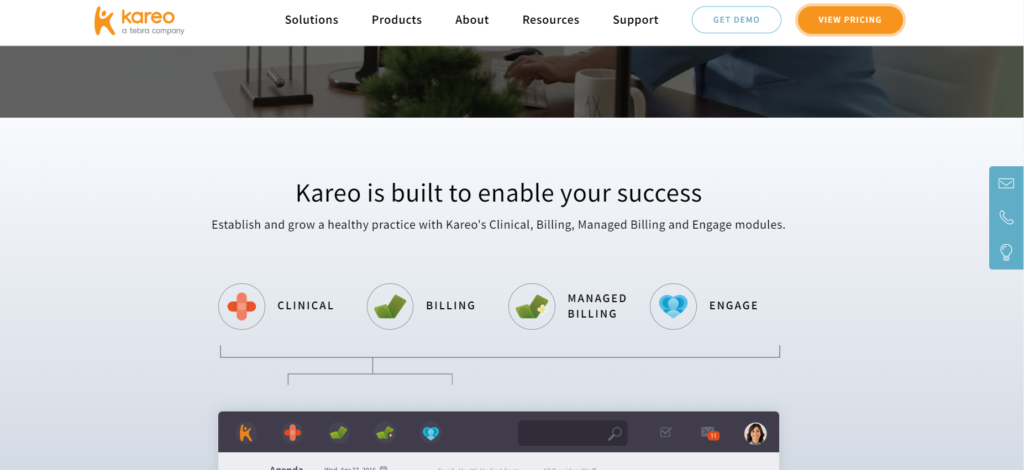
Popular cloud-based medical billing program Kareo is renowned for its encompassing features and easy-to-use UI. It provides resources for patient billing, appointment scheduling, electronic remittance advice (ERA) processing, and claims administration.
Kareo offers comprehensive reporting and analytics, enhances revenue cycle management, and automates the billing process. Small and medium-sized healthcare offices utilize it extensively because of its broad capabilities, cost, and ease of use.
FEATURES –
– Cloud-based EHR and Practice Management.
– Integrated billing and telemedicine.
– Customizable templates and reporting.
– Patient engagement tools.
PROS –
– User-friendly interface
– Comprehensive billing features
– Integrates with EHR and practice management systems.
CONS –
– Can be expensive for small practices
– Occasional slow customer support.
PRICE –
– Starts at $125/month.
REVIEW –
– Kareo is a popular choice for medical billing but may be costly for smaller practices.
RATING – ★★★★☆
2. NextGen Healthcare
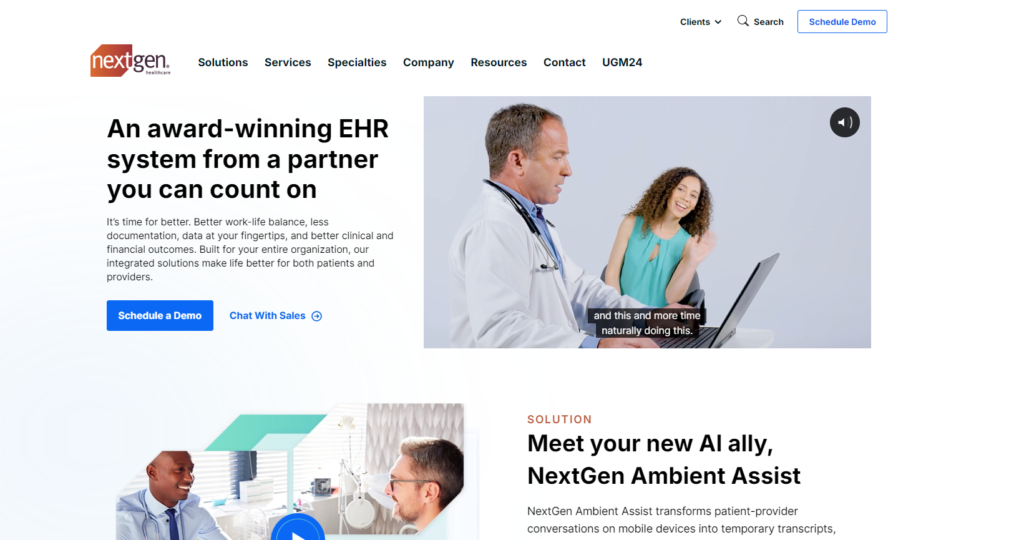
One of the greatest and most complete billing software packages is NextGen Healthcare, which offers several features like revenue reporting, coding help, payment posting, and claims management. It offers resources for optimising, automating, and simplifying billing procedures.
Many different types of practices, including solo practitioners, multispecialty clinics, and larger healthcare organisations, have embraced NextGen Healthcare. It is renowned for its versatility, scalability, and strong functioning.
FEATURES –
– Integrated EHR and Practice Management.
– Specialty-specific templates.
– Patient portal and telehealth.
– Revenue cycle management.
PROS –
– Robust reporting
– Integrated HER
– Customizable workflows.
CONS –
– Complex for beginners
– Steep learning curve
– Expensive.
PRICE –
– $299/month (average pricing).
REVIEW –
– Feature-rich but requires significant onboarding and can be costly.
RATING – ★★★★☆
3. Flash Code
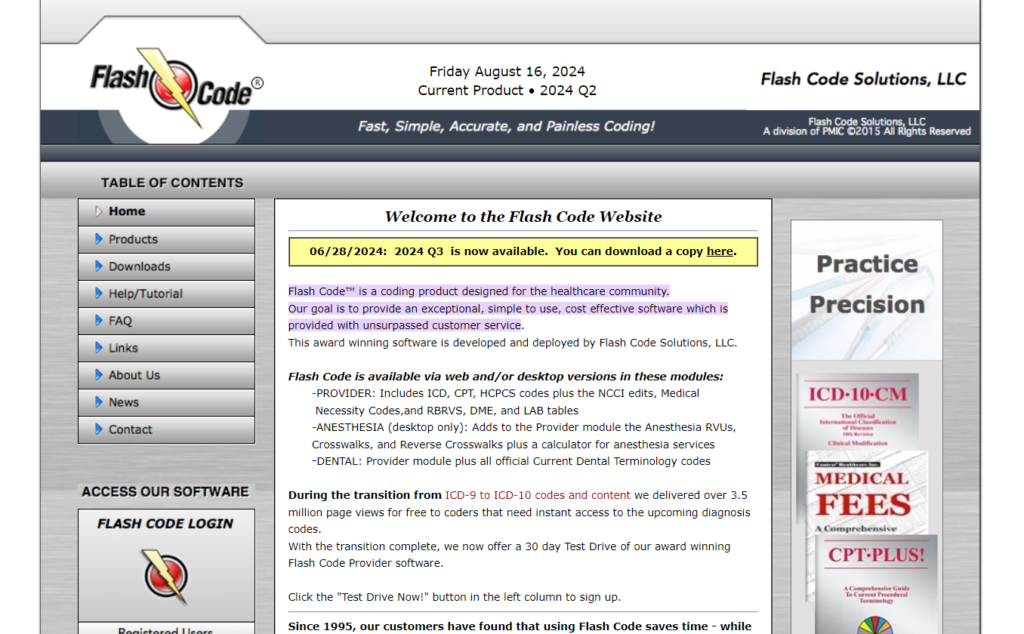
With the healthcare sector in mind, Flash Code is an innovative electronic coding and compliance solution. It helps clients in the medical field, hospitals, government agencies, and the insurance industry with their coding and compliance needs by providing a wide range of coding tools and precise solutions.
Healthcare providers and payers of all sizes, including big hospitals, government organisations, health insurance companies, and small doctor’s offices, frequently use Flash Code. Dental practitioners also use it for dental coding needs.
FEATURES –
– ICD-10 and CPT coding tool.
– Real-time code updates.
– Cross-referencing and code linking.
– Customizable code sets.
PROS –
– Excellent coding accuracy
– Fast lookup for codes
– Supports ICD-10.
CONS –
– Limited advanced features beyond coding
– Not a full billing solution.
PRICE –
– $250/year.
REVIEW –
– Great for coding but lacks the full suite of billing tools.
RATING – ★★★☆☆
4. WebPT
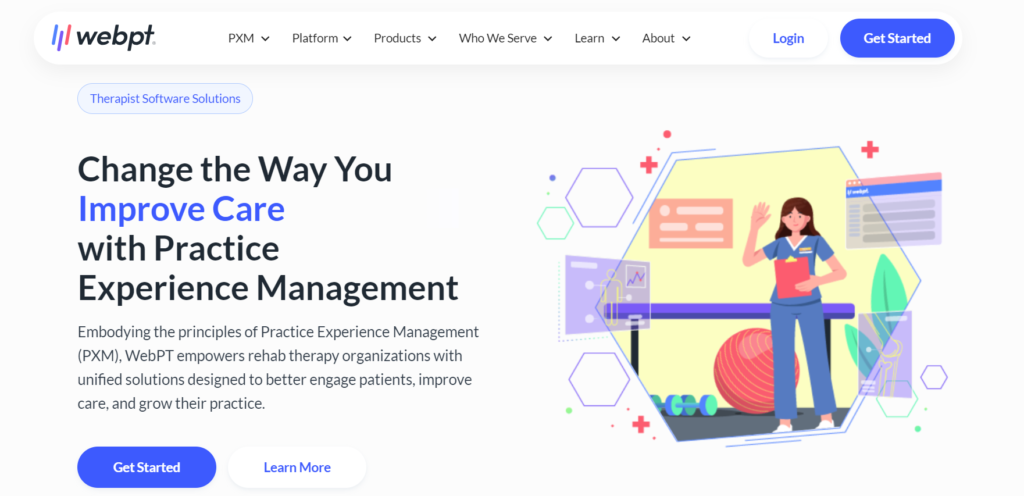
More than 150,000 rehab therapy practitioners of all practice sizes and specialisations use WebPT, an outpatient software platform that was founded in 2008, to manage their practices more profitably and with better patient care.
Additionally, because WebPT is a cloud-based program, PTs, OTs, and SLPs can access the platform and its data at any time and from any location, which fosters communication between patient care teams and outside payers.
FEATURES –
– Cloud-based EMRs for rehab therapists.
– Scheduling and billing features.
– Patient outcome tracking.
– Compliance-driven documentation.
PROS –
– Tailored for physical therapy
– Integrated documentation
– Cloud-based
CONS –
– Focuses on specific specialties
– Not ideal for general practices.
PRICE –
– $3/day (per provider).
REVIEW –
– Excellent for physical therapists but lacks broad appeal.
RATING – ★★★★☆
5. hCue Pharmacy Software
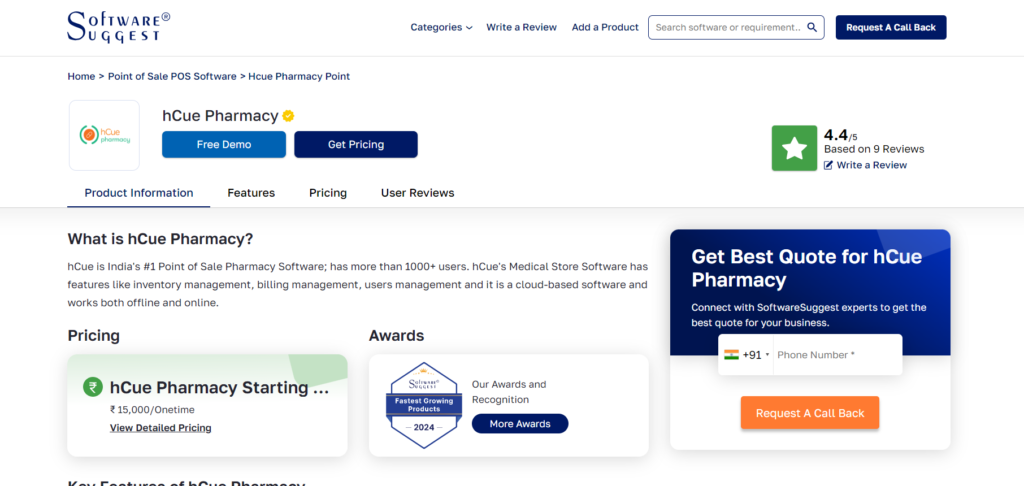
A software as a service (SaaS) platform called hCue Pharmacy Software/Medical Store Software is intended to dramatically cut costs by optimising the operations and procedures of chain pharmacies and small- to mid-sized pharmacies.
According to the vendor, this solution provides unmatched deployment, licensing, and upgrade flexibility and scalability. It includes its unique Thunderbolt user interface, which was developed to assist pharmacies in handling large volumes of medical billing and transactions.
FEATURES –
– Cloud-based pharmacy management.
– Inventory and billing management.
– E-prescription support.
– Analytics and reporting
PROS –
– Comprehensive for pharmacy billing
– Cloud-based
– Real-time data insights.
CONS –
– Only relevant to pharmacy practices
– Not suitable for general medical billing.
PRICE –
– 15000/- one time investment
REVIEW –
– Well-suited for pharmacies, offering seamless billing and inventory management.
RATING – ★★★☆☆
6. Rectangle Health
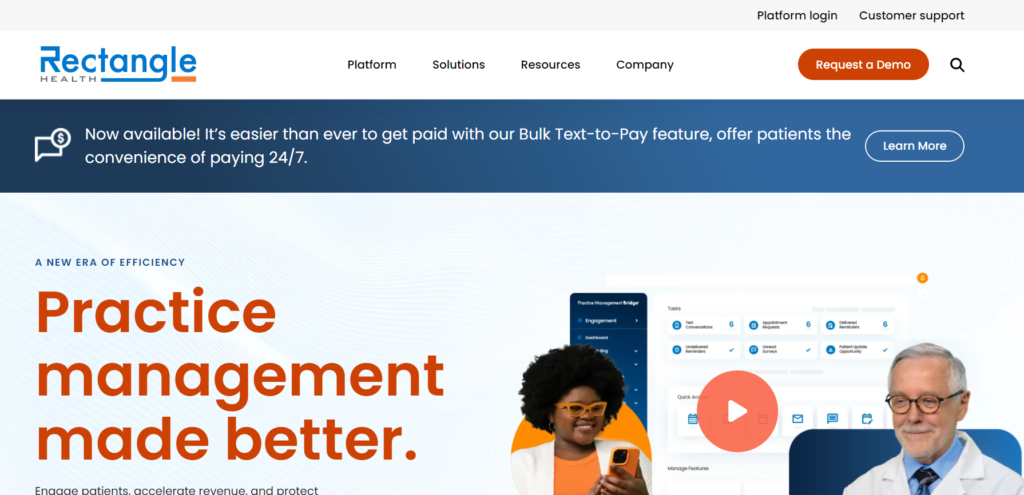
As a way to ease compliance, lessen administrative load, and improve patient experience. Rectangle Health provides solutions that support medical practices of all sizes and specialisations in improving their operational and financial stability.
Practice Management Bridge, their software solution, is a patient payment and engagement platform that improves patient experiences, saves time, simplifies patient payments, and lowers the risk of noncompliance.
FEATURES –
– Integrated healthcare payment solutions.
– Patient financing and payment plans.
– Secure, compliant payment processing.
– Practice management integration.
PROS –
– Payment processing integration
– Easy to use
– Good customer support.
CONS –
– Limited features compared to comprehensive billing systems
– Pricing transparency issues.
PRICE –
– Custom pricing
REVIEW –
– Good for managing payments but lacks some advanced billing functionalities.
RATING – ★★★☆☆
7. Apex
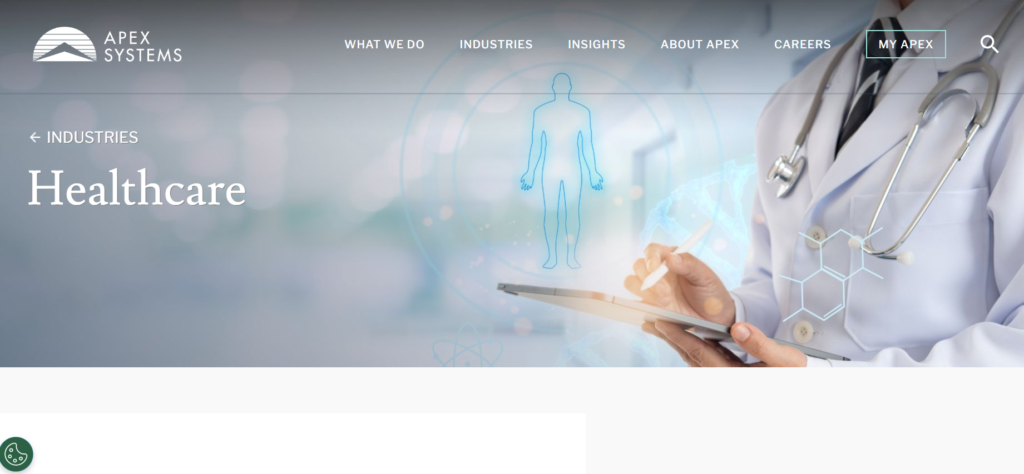
A practicing dentist established Apex Payment Solutions, a nationwide provider of merchant services. Their payment solutions are intended to assist practices in improving collections, optimising workflow, and streamlining end-of-day reporting.
In addition, Apex offers enterprise-level transaction management, limitless training, and responsive customer support. It also has the capacity to collaborate with growing practices.
FEATURES –
– Medical billing software.
– Automated claims processing.
– Denial management tools.
– Customizable reports.
PROS –
– Automated claims process
– Customizable for different specialties.
CONS –
– User interface can feel outdated
– Steep learning curve.
PRICE –
– Custom pricing.
REVIEW –
– A solid billing tool with a few design and usability issues.
RATING – ★★★☆☆
8. Rexpert
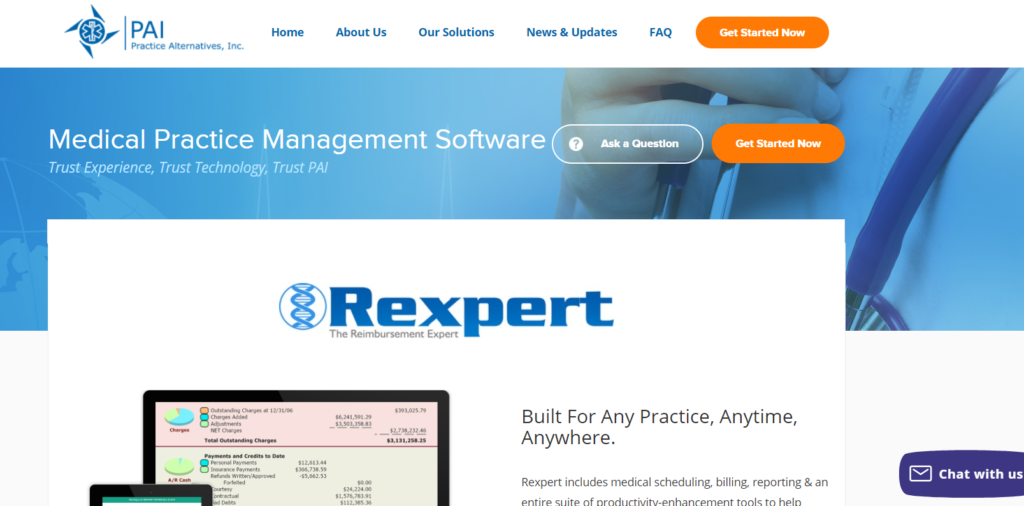
Practice Alternatives, Inc. created Rexpert, a practice management tool designed to improve productivity and simplify processes in healthcare environments.
Ambulatory Surgical Centers (ASC), physician practices, clinics, group practices, hospital-owned physician groups, and other practice types are all served by this software package.
FEATURES –
– Cloud-based revenue cycle management.
– Automated billing and coding.
– Patient account management.
– Detailed analytics and reporting.
PROS –
– Robust claims management
– Real-time claim status
– Integrates with practice management systems.
CONS –
– Interface can be confusing for beginners
– High learning curve.
PRICE –
– Custom pricing.
REVIEW –
– Highly specialized but can be overwhelming for first-time users.
RATING – ★★★★☆
9. Codify
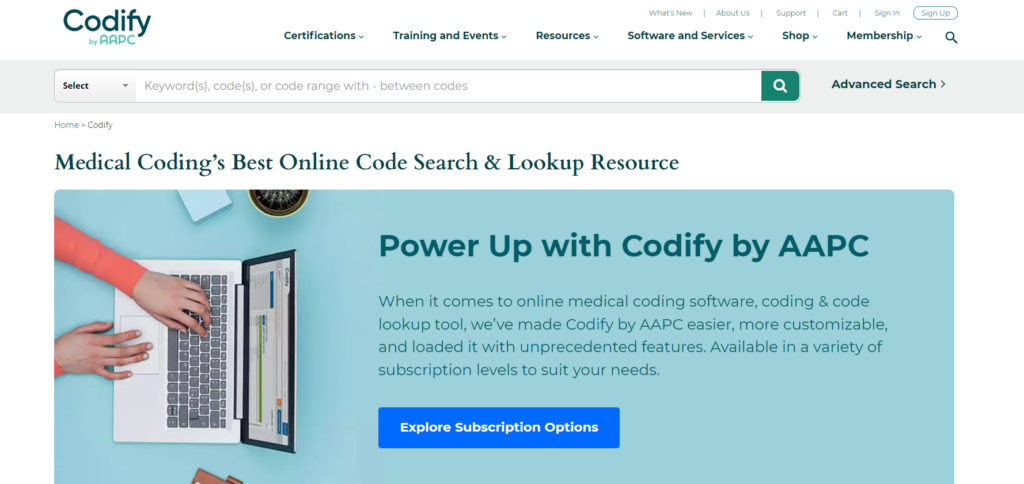
To help medical coders choose and assign medical codes effectively for billing and reimbursement purposes, Codify is an online software application. Large healthcare enterprises, small medical clinics, solo medical coders, and medical coding schools can all benefit from Codify, according to the vendor.
Medical coders, physicians, non-physician coders, outpatient facilities, inpatient coders, auditors, and healthcare organizations all use it.
FEATURES –
– Medical coding software.
– Up-to-date ICD-10, CPT, and HCPCS codes.
– Crosswalk and NCCI edits.
– Searchable code database.
PROS –
– Accurate coding
– Easy code lookup
– Regularly updated ICD codes.
CONS –
– Not a comprehensive billing solution
– Limited to coding assistance.
PRICE –
– $179/year.
REVIEW –
– Excellent coding tool but lacks broader billing capabilities.
RATING – ★★★☆☆
10 .GreenSense
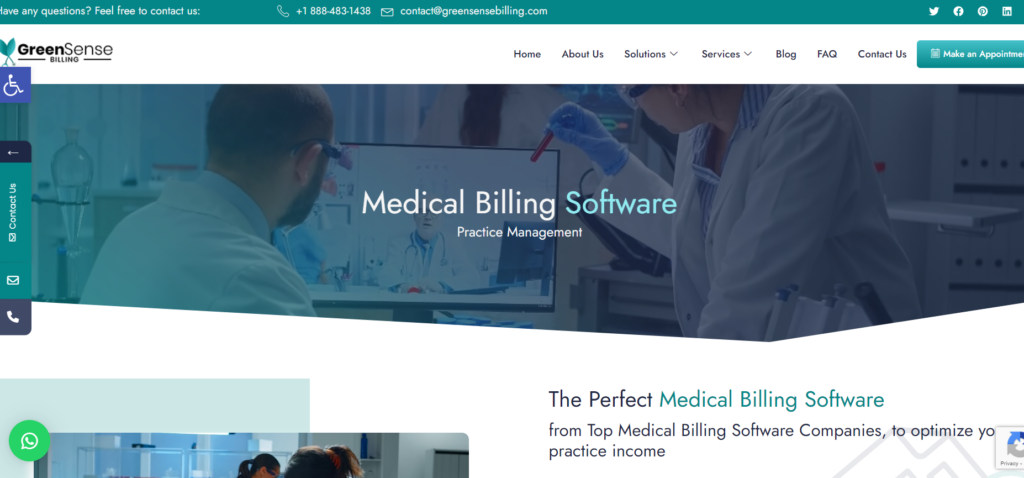
A practice management program created especially for healthcare practitioners is called GreenSense Billing. As stated by the supplier, it provides a way for small to medium-sized medical offices to manage their invoicing and administrative duties.
With the help of this software, medical, dental, chiropractic, physical therapy, and mental health practices may be able to improve their financial performance and simplify their operations.
FEATURES –
– Medical practice management software.
– Financial analytics and reporting.
– Patient scheduling and billing.
– Customizable dashboards.
PROS –
– Budget-friendly
– Cloud-based
– Customizable billing options.
CONS –
– Fewer integrations with EHRs
– Limited customer support.
PRICE –
– $50/month.
REVIEW –
– A good choice for small practices with budget constraints.
RATING – ★★★☆☆
Wrapping Up
Selecting the right medical billing software is a vital decision that can greatly impact the efficiency and profitability of your healthcare practice. By considering the unique features and strengths of the leading options, you can choose a solution that not only meets your immediate needs but also supports your long-term goals. Whether you prioritize comprehensive revenue cycle management, seamless integration with other systems, or user-friendly interfaces, the right software will enhance your practice’s operations and contribute to better patient care.
Read More Related Post:
FAQ’S
1. How much do medical billing tools and software cost?
The cost of a medical billing solution will vary depending on the software choice, plan size, and whether or not the billing software charges a per-provider fee or a per-transaction fee.
2. What are some important features of medical billing tools?
When choosing medical billing solution, look for key features such as HIPAA compliance, medical coding, and data encryption. Ensure it has strong security measures like two-factor authentication (2FA) and scheduled backups. The software should also provide claims and revenue management, scheduling tools, and technical support. Additionally, consider options that offer a trial period and various training resources.
3. What do you need to know about choosing a medical billing software?
When choosing medical billing software, get a demo or trial first. Look for integrated features beyond billing, such as scheduling and compliance tools, to simplify your practice. Ensure it supports your entire workflow, from appointments to records, while keeping you compliant with privacy laws.















